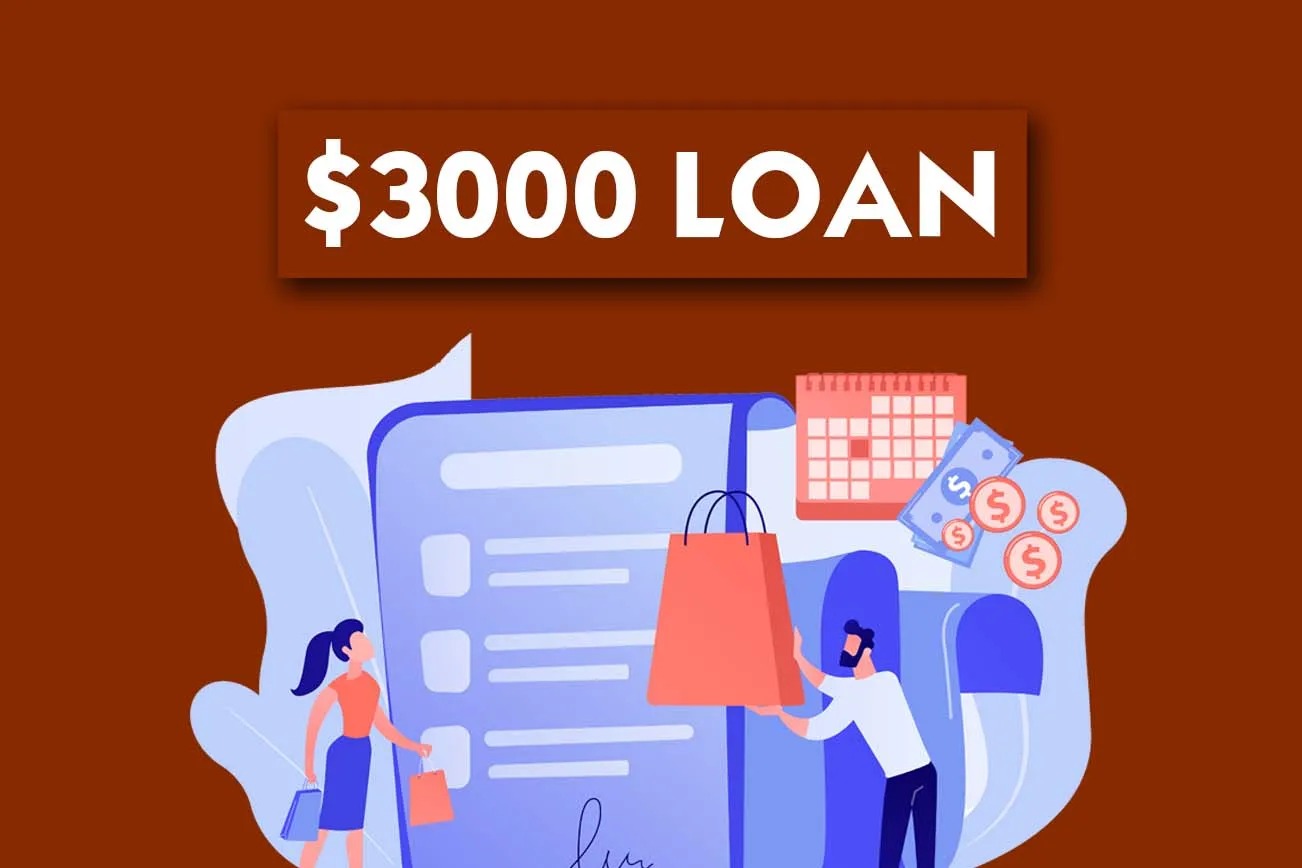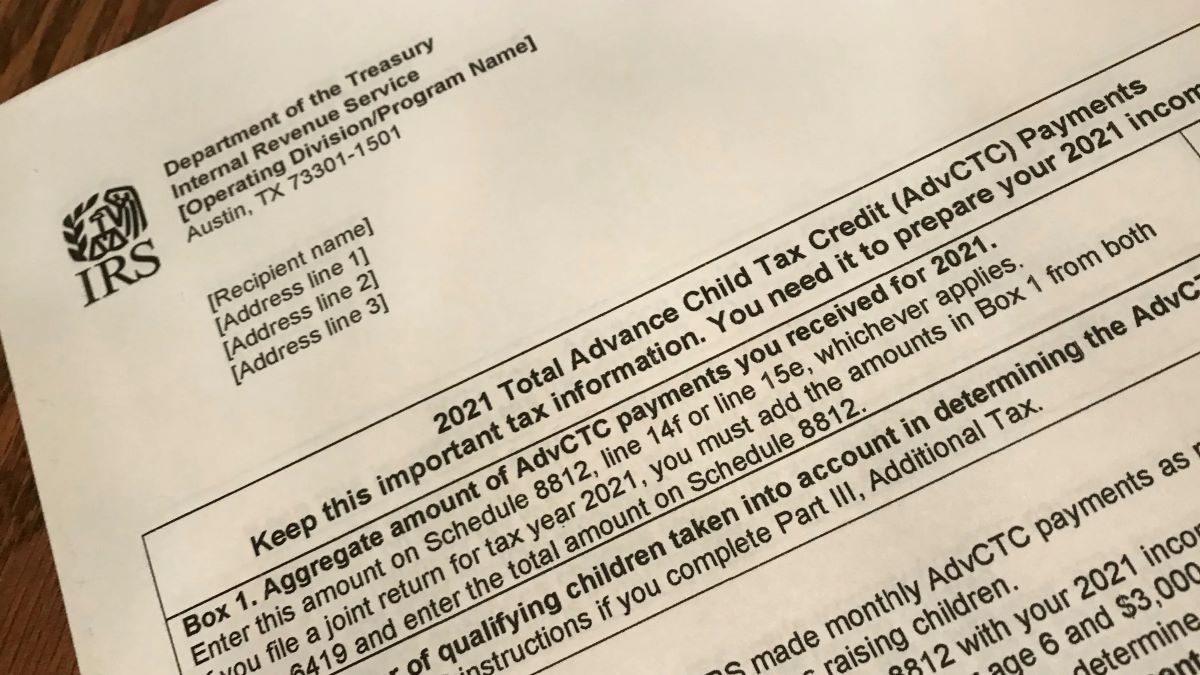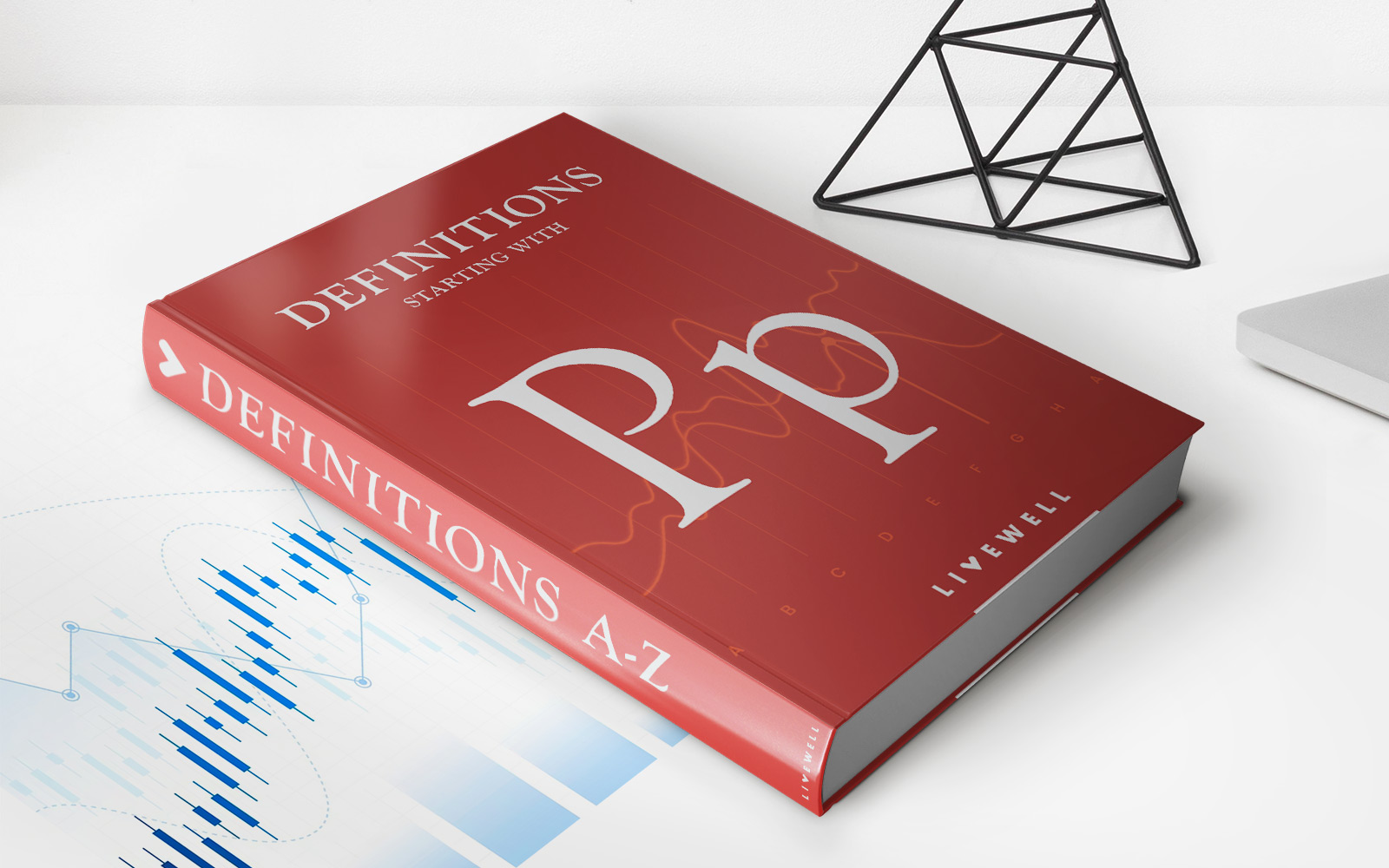

Finance
How Can I Lease A Car With Bad Credit
Published: January 11, 2024
Looking to lease a car with bad credit? Discover finance options and tips to secure a car lease, even with less than perfect credit.
(Many of the links in this article redirect to a specific reviewed product. Your purchase of these products through affiliate links helps to generate commission for LiveWell, at no extra cost. Learn more)
Table of Contents
- Introduction
- Understanding Credit Scores
- Factors Affecting Car Lease Approval
- Steps to Lease a Car with Bad Credit
- Finding Lenders Specializing in Bad Credit Car Leases
- Negotiating Lease Terms and Conditions
- Reviewing Lease Agreements and Fine Print
- Making Timely Lease Payments to Improve Credit
- Frequently Asked Questions about Leasing a Car with Bad Credit
- Conclusion
Introduction
Leasing a car can be a convenient and cost-effective way to get behind the wheel of a new vehicle. However, if you have bad credit, you may be concerned about your ability to secure a car lease. The good news is that having a less-than-perfect credit score doesn’t necessarily mean you can’t lease a car. There are options available that cater specifically to individuals with bad credit. By understanding credit scores, knowing the factors that affect car lease approval, and following a few steps, you can increase your chances of leasing a car even with bad credit.
Credit scores play a crucial role in determining whether a lender will approve your car lease application. Credit scores are three-digit numbers that depict your creditworthiness based on your credit history. They are an instrumental tool used by lenders to assess the level of risk involved in providing financial assistance. Typically, credit scores range from 300 to 850, with a higher score indicating better creditworthiness. However, different lenders may have their own criteria for classifying credit scores as “good” or “bad.”
When it comes to leasing a car, there are specific factors that lenders consider when assessing your application. These factors include your credit score, income, employment history, and debt-to-income ratio. While bad credit may present some challenges, it doesn’t necessarily mean you won’t be approved for a car lease. By taking the right steps and being proactive in your approach, you can increase your chances of getting approved for a car lease even with bad credit.
In this article, we will guide you through the steps to lease a car with bad credit. We will also explore how to find lenders specializing in bad credit car leases, negotiate lease terms, review lease agreements, and make timely payments to improve your credit over time. By following these steps, you can drive away in a new car and work towards rebuilding your credit at the same time.
Understanding Credit Scores
Credit scores are numerical representations of an individual’s creditworthiness and are commonly used by lenders to assess the risk associated with providing credit. These scores are generated by credit reporting agencies (such as Equifax, Experian, and TransUnion) based on information from your credit history, including payment history, credit utilization, length of credit history, types of credit accounts, and recent credit inquiries. Credit scores generally range from 300 to 850, with higher scores indicating better creditworthiness.
There are several credit scoring models, with the FICO® Score being the most widely used. The FICO® Score is calculated based on the following factors:
- Payment History: This factor accounts for the largest portion of your credit score. It looks at whether you have made timely payments on your credit accounts, including loans, credit cards, and utility bills.
- Credit Utilization: This factor considers the amount of credit you are currently using compared to your overall credit limits. Ideally, it is recommended to keep your credit utilization below 30%.
- Length of Credit History: This factor takes into account the age of your credit accounts, including the age of your oldest account, the average age of all your accounts, and the age of your newest account.
- Types of Credit: This factor looks at the different types of credit accounts you have, such as credit cards, loans, and mortgages. Having a mix of credit accounts can positively impact your credit score.
- Recent Credit Inquiries: This factor evaluates the number of recent credit inquiries or applications for credit that you have made. Multiple inquiries within a short period can negatively impact your credit score.
It’s important to understand that different lenders may have their own criteria for classifying credit scores as “good” or “bad.” Generally, credit scores above 700 are considered good, while scores below 600 are considered bad or poor. However, even if you have a bad credit score, it doesn’t mean you can’t lease a car. There are specialized lenders who offer car leases to individuals with less-than-perfect credit.
Before applying for a car lease with bad credit, it’s a good idea to check your credit report and score. You can obtain a free copy of your credit report once a year from each of the major credit reporting agencies. Reviewing your report will allow you to identify any errors or discrepancies that may be negatively impacting your credit score. By addressing these issues, you can potentially improve your chances of getting approved for a car lease.
Factors Affecting Car Lease Approval
When it comes to leasing a car with bad credit, there are several factors that lenders consider before approving your application. While having bad credit may make the process more challenging, understanding these factors can help you navigate the leasing process more effectively. Here are the key factors that can impact your car lease approval:
- Credit Score: Your credit score is a significant factor that lenders consider when assessing your car lease application. A low credit score can be an indication of a higher risk for the lender, which may result in a higher interest rate or more stringent terms.
- Income: Your income plays a crucial role in the leasing process, as it demonstrates your ability to make lease payments. Lenders will typically require proof of income, such as pay stubs or bank statements, to ensure that you have sufficient funds to cover the monthly lease payments.
- Employment History: Lenders may also consider your employment history to assess stability and reliability. If you have a consistent employment record, it can work in your favor and increase your chances of getting approved for a car lease.
- Debt-to-Income Ratio: Lenders evaluate your debt-to-income ratio, which is the percentage of your monthly income that goes towards debt payments. A high debt-to-income ratio may signal a higher risk for the lender and could impact your lease approval.
- Down Payment: Offering a larger down payment can help mitigate the lender’s risk and increase your chances of getting approved for a car lease. A higher down payment reduces the overall amount you will be financing and demonstrates your commitment to the lease agreement.
- Co-signer: If you have a bad credit history, having a co-signer with good credit can significantly improve your chances of getting approved for a car lease. A co-signer agrees to take joint responsibility for the lease payments, providing additional assurance to the lender.
It’s important to note that each lender may have different criteria and weightings for these factors. Some lenders specialize in providing car leases for individuals with bad credit and may be more flexible in their requirements. It’s advisable to research different lenders and explore your options to find the best fit for your situation.
By understanding the factors that impact car lease approval, you can be better prepared when applying for a lease with bad credit. While having bad credit may pose some challenges, there are strategies you can employ to increase your chances of approval, such as improving your credit score, demonstrating stable employment, and providing a larger down payment.
Steps to Lease a Car with Bad Credit
Leasing a car with bad credit may require a bit more effort and research, but it is certainly possible. Here are the steps you can take to increase your chances of successfully leasing a car despite having bad credit:
- Check and Understand Your Credit: Before beginning the leasing process, it’s essential to check your credit report and understand your credit score. Reviewing your credit report will allow you to identify any errors or discrepancies that may be negatively impacting your score. Take steps to address these issues and improve your credit standing.
- Research and Compare Lenders: Look for lenders who specialize in offering car leases to individuals with bad credit. Research different lenders, compare their lease terms, interest rates, and requirements. Consider reaching out to local credit unions and online lenders who may have more flexible options.
- Estimate Your Budget: Determine how much you can comfortably afford to spend on a monthly lease payment. Consider factors such as your monthly income, expenses, and other financial obligations. It’s important to ensure that the lease payment fits within your budget to avoid financial strain.
- Determine the Type of Vehicle: Decide on the type of vehicle you are interested in leasing. Consider factors such as your lifestyle, daily commute, and any specific features or options you require. Research different models to find one that suits your needs and falls within your budget.
- Save for a Down Payment: Saving for a down payment can significantly improve your chances of getting approved for a car lease, even with bad credit. A larger down payment can reduce the total amount financed and show the lender your commitment to the lease agreement.
- Consider a Co-Signer: If possible, find a co-signer with a good credit history. A co-signer agrees to take joint responsibility for the lease payments, providing additional assurance to the lender. This can increase your chances of getting approved for a car lease and may even help you secure better lease terms.
- Prepare Documentation: Gather all the necessary documentation that lenders may require for the leasing process. This typically includes proof of income, employment verification, proof of residency, and a valid driver’s license. Having these documents ready beforehand can expedite the application process.
- Visit the Dealership: Once you have researched lenders and have your documentation in order, visit the dealership to explore your leasing options. Discuss your situation and requirements with the dealership’s finance department and work with them to find a lease agreement that fits your needs and financial capabilities.
- Negotiate Lease Terms: Don’t hesitate to negotiate lease terms that are favorable to you. Negotiate factors such as the lease length, monthly payment, mileage limitations, and maintenance provisions. Be clear about your budget constraints and express your willingness to work together towards an agreement.
- Review the Lease Agreement: Carefully review the lease agreement before signing. Ensure that you understand all the terms, including the monthly payment, lease length, and any penalties or fees. Seek clarification for anything you are unsure about.
By following these steps, you can navigate the leasing process with bad credit and increase your chances of securing a car lease. Remember to be proactive, research your options, and advocate for yourself to find a suitable lease agreement that aligns with your financial situation.
Finding Lenders Specializing in Bad Credit Car Leases
If you have bad credit and are looking to lease a car, it’s important to find lenders who specialize in offering car leases to individuals with less-than-perfect credit. These lenders are more familiar with the challenges that individuals with bad credit face and may have more flexible approval criteria. Here are some strategies to help you find lenders specializing in bad credit car leases:
- Research Online: Conduct thorough online research to find lenders who specifically cater to individuals with bad credit. Look for lenders who advertise themselves as “bad credit car lease specialists” or “subprime auto lenders.” Visit their websites to learn more about their requirements, terms, and contact information.
- Visit Local Credit Unions and Banks: Local credit unions and banks may have special programs or options for borrowers with bad credit. Visit their branches or check their websites to see if they offer car leases to individuals with less-than-perfect credit. Make sure to inquire about any specific requirements or steps you need to follow.
- Seek Referrals: Reach out to friends, family, or colleagues who have leased a car with bad credit in the past. They may be able to provide recommendations or share their experiences with specific lenders. Getting referrals from trusted sources can help narrow down your options and give you peace of mind.
- Explore Online Marketplaces: Consider using online marketplaces that connect borrowers with lenders who specialize in bad credit car leases. These platforms allow you to input your information and receive personalized loan offers from multiple lenders. Compare the offers received to find the best fit for your needs.
- Contact Auto Dealerships: Some auto dealerships work with lenders who specifically cater to individuals with bad credit. Contact local dealerships to inquire about their financing options for individuals with less-than-perfect credit. They may have access to lenders who are more willing to work with you.
- Attend Car Lease Events: Keep an eye out for car lease events or promotions in your area. These events often have multiple lenders participating, including those who specialize in bad credit car leases. Attend these events to connect with lenders directly and explore your options.
- Work with a Lease Broker: Lease brokers are intermediaries who specialize in helping individuals find lease agreements that meet their specific needs. They have connections with various lenders and can assist you in finding lenders specializing in bad credit car leases. Keep in mind that lease brokers may charge a fee for their services.
When approaching lenders, be prepared to provide documentation such as proof of income, employment verification, and personal identification. It’s important to shop around and compare offers from different lenders to ensure you are getting the most suitable terms and rates for your situation.
By utilizing these strategies and exploring different options, you can increase your chances of finding lenders who specialize in bad credit car leases. Remember to conduct thorough research, ask questions, and carefully review the terms and conditions before committing to a lease agreement.
Negotiating Lease Terms and Conditions
When leasing a car with bad credit, it’s important to understand that you still have the ability to negotiate lease terms and conditions. Negotiating can help you secure better terms, lower monthly payments, and overall, a more favorable lease agreement. Here are some tips to effectively negotiate lease terms and conditions:
- Do Your Research: Before entering into negotiations, it’s crucial to research the market value and terms of the vehicle you are interested in leasing. This information will give you leverage when discussing lease terms and can help you determine the fair price and lease conditions.
- Know Your Budget: Determine your budget and how much you can comfortably afford to pay on a monthly basis. Use this information as a starting point for negotiations and clearly communicate your financial limitations to the dealership or leasing company.
- Focus on the Total Lease Cost: When negotiating, it’s important to focus on the total lease cost rather than just the monthly payment. While a lower monthly payment may seem appealing, it can sometimes be achieved by extending the lease term, resulting in a higher overall cost. Consider the total cost of the lease and negotiate based on that metric.
- Consider the Lease Length: The length of the lease can significantly impact your monthly payments. Shorter leases usually result in higher monthly payments but can offer the advantage of returning to the market for a new lease sooner. Longer leases may result in lower monthly payments but can tie you to a vehicle for an extended period. Choose a lease length that aligns with your needs and negotiate accordingly.
- Mileage Allowance: The mileage allowance is an essential aspect of a lease agreement. Negotiate for a mileage allowance that matches your anticipated usage to avoid excess mileage charges at the end of the lease. If necessary, explore the option of purchasing additional mileage upfront at a lower cost.
- Consider Wear and Tear: Lease agreements often outline guidelines for normal wear and tear on the vehicle. Clarify these guidelines and negotiate for reasonable expectations. Discuss any specific conditions or requirements that are unique to your situation and ensure they are included in the lease agreement.
- Review Insurance Requirements: Understand the insurance requirements outlined in the lease agreement. Ensure that the insurance coverage you need is feasible within your budget. If the insurance requirements are too costly, negotiate with the leasing company to find a mutually acceptable solution.
- Be Prepared to Walk Away: If the terms and conditions offered by a leasing company are not favorable or do not align with your budget and needs, be prepared to walk away and explore other options. Walking away can sometimes prompt the leasing company to reconsider and offer better terms.
Remember, negotiation is a two-way process. Be respectful but firm in your requests and communicate your needs and limitations clearly. The goal is to find a lease agreement that works for both parties involved. Taking the time to negotiate can result in significant savings and a lease agreement that suits your unique situation.
Reviewing Lease Agreements and Fine Print
When leasing a car with bad credit, it is crucial to thoroughly review the lease agreement and understand the fine print before signing. Lease agreements contain important terms and conditions that can impact your financial obligations and rights as a lessee. Here are some key steps to effectively review lease agreements and the fine print:
- Read the Entire Agreement: Take the time to read the lease agreement thoroughly. Start from the beginning and review each section carefully. It’s important not to skip over any information, as even small details can have significant implications.
- Understand Lease Duration and Terms: Pay attention to the lease duration, including the start and end dates. Review any terms or conditions related to extensions or early termination. Understand your rights and responsibilities throughout the lease period.
- Review Payment Details: Examine the lease agreement to ensure that the monthly payment amount and due dates match your expectations and budget. Take note of any penalties or fees associated with late payments or returned checks.
- Inspect Mileage Restrictions: Pay close attention to the mileage restrictions outlined in the lease agreement. Make sure the mileage allowance matches your anticipated usage. Calculating excess mileage charges can help you understand the potential financial implications when returning the vehicle.
- Consider Wear and Tear Guidelines: Look for any guidelines related to wear and tear on the vehicle. Take note of any specific conditions or requirements that you need to adhere to during the lease term. Understanding these guidelines can help you avoid additional charges when returning the vehicle.
- Review Insurance Requirements: Carefully review the insurance requirements outlined in the lease agreement. Ensure that the required coverage limits are practical and feasible within your budget. If necessary, consult with an insurance provider to ensure you can fulfill the insurance obligations.
- Identify Additional Fees and Charges: Look for any additional fees or charges mentioned in the lease agreement. Common fees may include acquisition fees, disposition fees at the end of the lease, or charges for excessive wear or damage. Understand these fees to avoid any surprises later on.
- Consider Early Termination and Exit Options: Take note of the terms and conditions related to early termination, should you need to exit the lease before the agreed-upon term. Understand any penalties or obligations you may have in such a situation.
- Clarify Dispute Resolution: Review the dispute resolution section of the lease agreement. Understand the process for resolving any conflicts or disagreements that may arise during the lease term. Ensure that the agreed-upon process is fair and reasonable for all parties involved.
- Seek Professional Advice if Necessary: If you have any doubts or concerns about specific clauses in the lease agreement, consider seeking advice from a legal professional or a trusted advisor who has experience in car leasing. They can help interpret the agreement and provide valuable insights.
Remember, the lease agreement is a legally binding contract, so it’s essential to understand all the terms and conditions before signing. If anything is unclear or if you have questions, don’t hesitate to ask the leasing company for clarification. Taking the time to review and understand the lease agreement will help ensure that you enter into a fair and transparent leasing arrangement.
Making Timely Lease Payments to Improve Credit
One of the significant benefits of leasing a car with bad credit is the opportunity to improve your credit score over time. Making timely lease payments is crucial to rebuilding your credit and demonstrating financial responsibility. Here are the reasons why and steps to make timely lease payments to improve your credit:
1. Positive Payment History: Payment history plays a significant role in determining your credit score. Making your lease payments on time each month demonstrates responsible financial behavior to credit reporting agencies. Every timely payment contributes to building a positive payment history, which can boost your credit score over time.
2. Lower Credit Utilization: Your credit utilization ratio, which is the percentage of your available credit that you are currently using, has a direct impact on your credit score. By making timely lease payments, you maintain a healthy credit utilization ratio, as the lease payment contributes to your overall credit usage in a positive way.
3. Building Confidence with Lenders: Timely lease payments show potential future lenders that you are reliable and trustworthy when it comes to repaying debts. As a result, lenders may be more inclined to offer you other credit opportunities in the future, such as loans or credit cards, with more favorable terms and interest rates.
Steps to Make Timely Lease Payments:
- Set Up Automated Payments: Consider setting up automated monthly payments for your lease. This ensures that your payments are made on time without the risk of forgetting or missing a due date. Check with the leasing company to see if they offer automated payment options.
- Create a Budget: Proper financial planning is essential for making timely payments. Create a realistic monthly budget that considers all your expenses and income, including the lease payment. Ensure that you have enough funds available each month to cover the lease payment without causing any financial strain.
- Set Reminders: If automated payments are not an option, set reminders on your calendar or phone to alert you in advance of your lease payment due date. This helps you stay organized and ensures that you don’t overlook or miss a payment.
- Allocate Funds in Advance: Prioritize making your lease payment by allocating the necessary funds in advance. Set aside the specific amount required for the lease payment in a separate account or envelope so that it is readily available when the payment is due.
- Track Due Dates: Keep track of your lease payment due dates and be aware of any changes to the payment schedule or frequency. Stay informed about any updates or modifications to your lease agreement that may impact your payment schedule.
- Contact Lender in Case of Financial Hardship: If you encounter unexpected financial difficulties and are unable to make a lease payment on time, contact your lender as soon as possible. Explain your situation and work together to find a solution that avoids any negative impact on your credit and lease agreement.
- Monitor Your Credit: Regularly monitor your credit report to ensure that your lease payments are being reported accurately. Look for any discrepancies or errors that may impact your credit score and address them with the credit reporting agencies if necessary.
By following these steps and making timely lease payments, you can gradually improve your credit over time. Rebuilding your credit score takes time and consistency, but with responsible payment habits, you can demonstrate your financial stability and qualify for better credit opportunities in the future.
Frequently Asked Questions about Leasing a Car with Bad Credit
Leasing a car with bad credit can be unfamiliar territory for many individuals. Here are some frequently asked questions to help shed light on the process and provide clarity:
Q: Can I lease a car with bad credit?
A: Yes, you can lease a car with bad credit. While having bad credit may present some challenges, there are lenders who specialize in providing car leases to individuals with less-than-perfect credit. However, keep in mind that lease terms and interest rates may differ compared to those offered to individuals with good credit.
Q: How does bad credit affect my leasing options?
A: Bad credit can impact your leasing options by potentially leading to higher interest rates, more stringent approval criteria, and less favorable lease terms. Lenders may view individuals with bad credit as higher-risk borrowers, which can result in additional requirements or higher costs.
Q: Will leasing a car with bad credit help improve my credit score?
A: Yes, making timely lease payments can potentially help improve your credit score over time. By demonstrating responsible financial behavior and positive payment history, you can show creditors and credit bureaus that you are capable of managing credit responsibly.
Q: How can I find lenders who specialize in bad credit car leases?
A: Researching online, visiting local credit unions and banks, seeking referrals, exploring online marketplaces, contacting auto dealerships, and working with lease brokers are all strategies to find lenders who specialize in bad credit car leases.
Q: Should I consider a co-signer for a car lease?
A: Having a co-signer with good credit can increase your chances of getting approved for a car lease with better terms and rates. However, make sure both you and the co-signer understand the obligations and responsibilities involved before proceeding with a co-signed lease agreement.
Q: Can I negotiate lease terms with bad credit?
A: Yes, negotiation is possible even with bad credit. Research the market value, lease terms, and conditions of the vehicle you are interested in leasing. Focus on the total lease cost, lease length, mileage allowance, and wear and tear guidelines during negotiations.
Q: What happens if I can’t make my lease payments on time?
A: If you anticipate difficulty making a lease payment on time, it is crucial to contact your lender as soon as possible to discuss your situation. They may be able to work with you to find a solution that avoids negative consequences such as late fees or damage to your credit score.
Q: Can I terminate a car lease early with bad credit?
A: Terminating a car lease early usually involves penalties and fees. With bad credit, the early termination process may be more challenging. Review the lease agreement for any clauses or provisions related to early termination and consult with the leasing company to explore your options.
Q: Is it possible to lease a car with bad credit and no down payment?
A: While it may be more difficult, it is possible to lease a car with bad credit and no down payment. However, keep in mind that providing a larger down payment can increase your chances of approval and may help secure more favorable lease terms.
Q: How long does it take to improve a credit score through leasing?
A: Improving a credit score takes time and consistency. Making timely lease payments can contribute to a positive payment history and, over time, help raise your credit score. The length of time required to see significant improvements in your credit score will depend on various factors, including your overall credit profile and the duration of the lease agreement.
While these answers provide general guidance, it’s important to consult with leasing professionals or financial advisors who can provide personalized advice based on your specific situation. Taking the time to understand the leasing process and your options will help you make informed decisions when leasing a car with bad credit.
Conclusion
Leasing a car with bad credit may come with its challenges, but it is certainly feasible with the right approach. By understanding credit scores, knowing the factors that affect car lease approval, and following the steps outlined in this article, you can increase your chances of securing a car lease that fits your needs and budget.
Remember that bad credit doesn’t have to be a roadblock to leasing a car. There are lenders who specialize in providing car leases to individuals with less-than-perfect credit, and by researching and comparing your options, you can find one that suits your situation.
During the leasing process, it’s vital to negotiate lease terms, review lease agreements, and understand the fine print. This helps ensure that you enter into a fair and transparent agreement that aligns with your financial capabilities and protects your rights as a lessee.
Making timely lease payments is not only important for fulfilling your financial obligations, but also for improving your credit over time. By consistently making payments, you can demonstrate financial responsibility and potentially raise your credit score, opening up more opportunities for favorable credit terms in the future.
While leasing a car with bad credit may require extra effort and attention, it can still offer you the opportunity to drive a new vehicle and work towards rebuilding your credit. Take the necessary steps, seek professional guidance if needed, and approach the process with patience and diligence.
Keep in mind that each individual’s credit situation is unique, and the information provided in this article should serve as a general guide. It is always a good idea to consult with leasing professionals, financial advisors, or legal experts to receive personalized advice tailored to your specific circumstances.
By staying informed, being proactive, and taking the necessary steps, you can lease a car with bad credit and pave the way for a brighter financial future.














